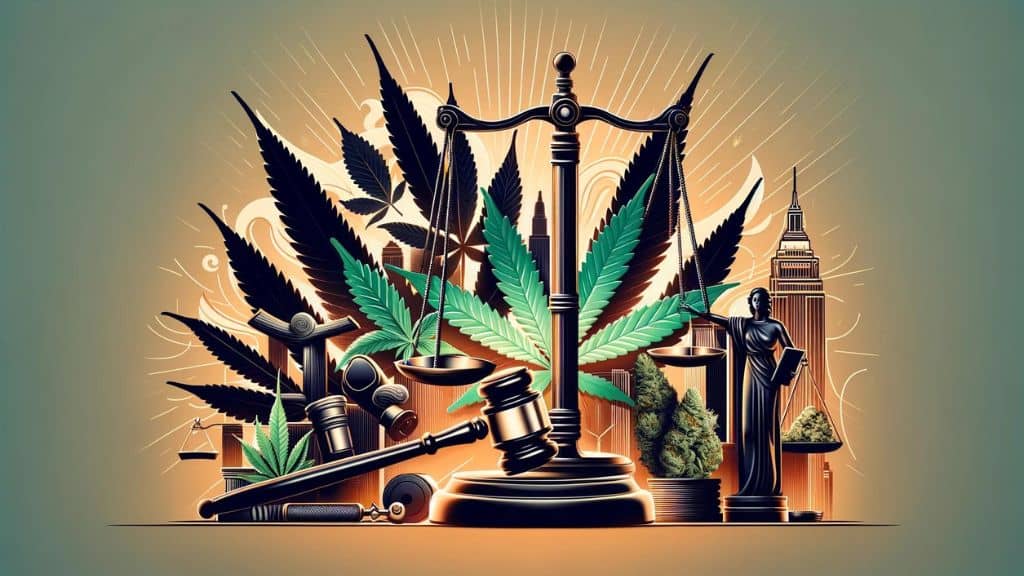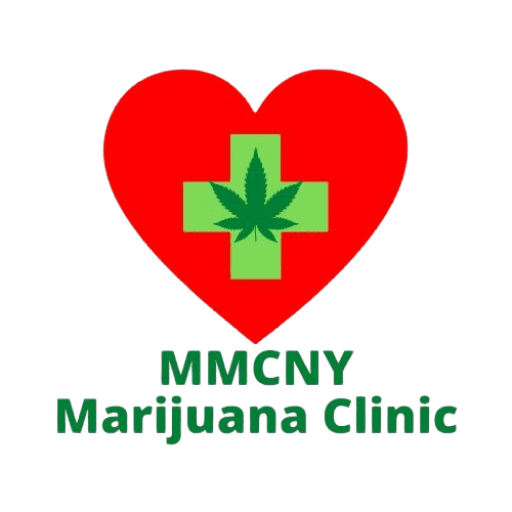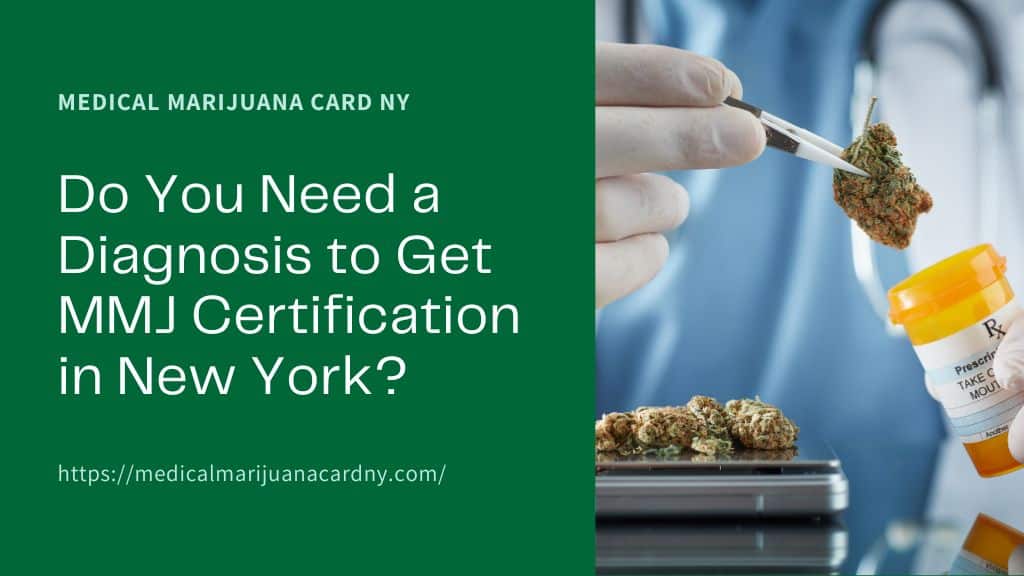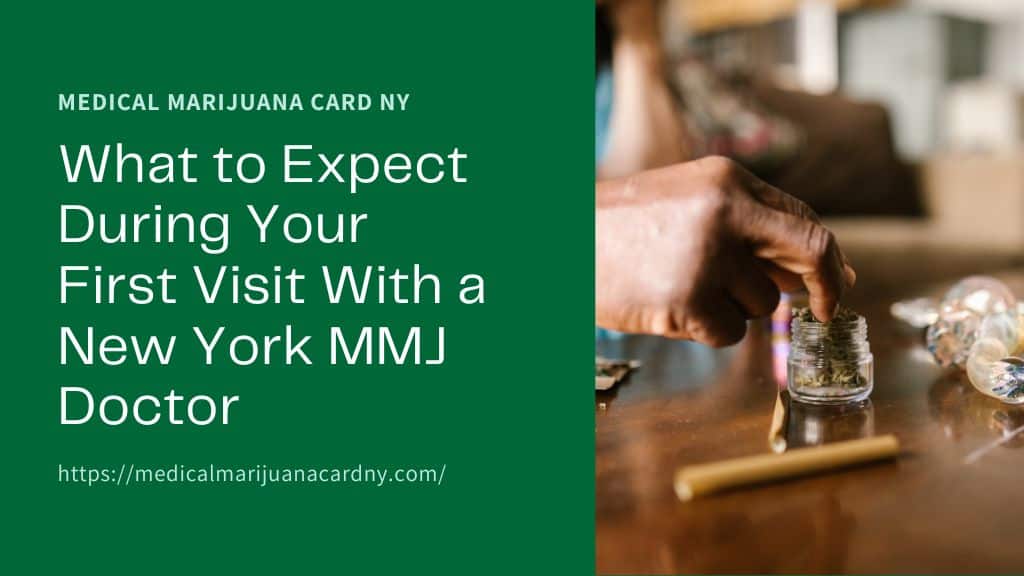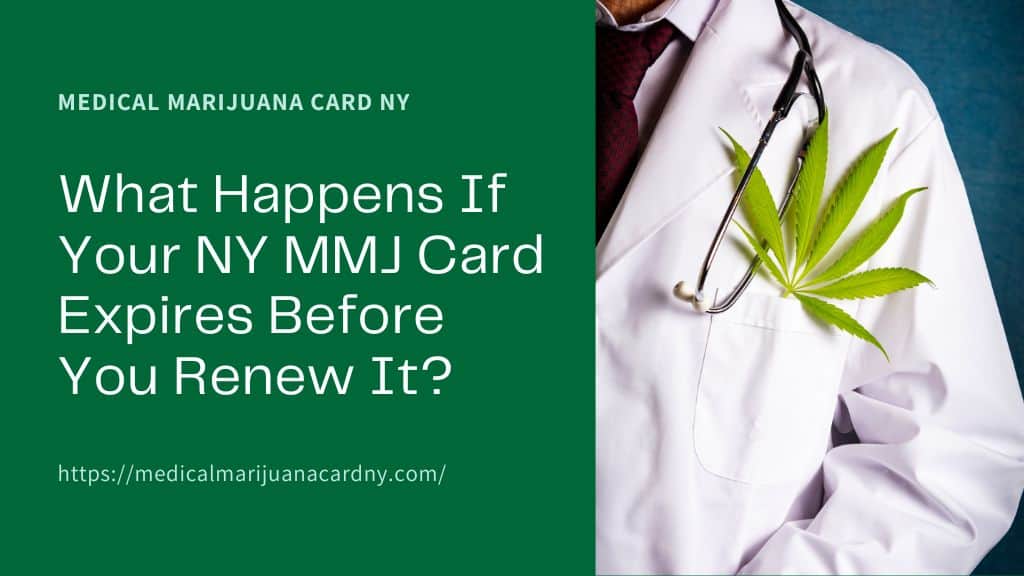Engaging in legal advocacy for medical marijuana in New York involves understanding the significant progress and the challenges that remain. Since the Medical Cannabis Program’s initiation in 2016 and its expansion with the Marihuana Regulation and Taxation Act (MRTA) in 2021, New York has seen growth in patient access and a move towards a more equitable cannabis industry. As of early 2024, there are over 118,000 registered patients and more than 4,000 certifying practitioners, showcasing the program’s success.
Furthermore, New York’s cannabis law prioritizes social and economic equity, aiming to rectify the disparities caused by past cannabis criminalization through initiatives like the State Seeding Opportunity Initiative. This initiative focuses on granting licenses to those historically affected, including minority and women-owned businesses, thereby addressing both medical needs and broader societal goals.
For those looking to engage in legal advocacy or learn more about medical marijuana in New York, it’s a dynamic field that combines healthcare, legal reform, and social justice. Advocacy is not just about enhancing patient care but also about fostering community health and supporting equitable economic growth. This brief overview invites readers to delve deeper into how they can contribute to shaping a fair, inclusive, and effective medical marijuana framework in New York.
Table of Contents
Toggle- What is the current status of medical marijuana in New York?
- Why is legal advocacy important for the future of medical marijuana in New York?
- What does legal advocacy for medical marijuana involve in New York?
- Who are the key players in the legal advocacy for medical marijuana in New York?
- How can individuals begin their journey in legal advocacy for medical marijuana in New York?
- Where can New Yorkers find resources and communities focused on medical marijuana advocacy?
- What are the most effective strategies for advocating for medical marijuana laws in New York?
- How can advocates effectively communicate with lawmakers and influencers in New York?
- What are the main challenges facing legal advocacy for medical marijuana in New York?
- How can advocates overcome opposition and obstacles in their advocacy efforts?
- Why is public opinion important in the advocacy for medical marijuana in New York?
- How can advocates influence public opinion on medical marijuana in New York?
- What legal considerations must advocates keep in mind while advocating for medical marijuana in New York?
- How can advocates ensure compliance with state laws and regulations in their advocacy efforts?
- Who is eligible for medical marijuana recommendations in New York?
- How do medical marijuana recommendations support the broader advocacy efforts in New York?
- What is the process for obtaining a medical marijuana recommendation in New York?
- Conclusion
What is the current status of medical marijuana in New York?
In New York, the Medical Cannabis Program, established in 2016 and expanded with the Marihuana Regulation and Taxation Act (MRTA) in 2021, has significantly improved access to medical marijuana for patients. This program has made it possible for thousands of New Yorkers to access safe, lab-tested medical cannabis treatments for various conditions. As of February 1, 2024, there were 118,954 registered patients and 4,265 certifying practitioners in the state, indicating a robust system supporting medical cannabis use.
Patients, after being certified by a healthcare provider, can purchase cannabis products from licensed New York State medical dispensaries using their medical cannabis certification and a government-issued photo ID. The program also supports healthcare providers with specific courses to ensure they are well-informed on the medical use of cannabis, highlighting the state’s commitment to a well-regulated and supportive medical cannabis environment.
Why is legal advocacy important for the future of medical marijuana in New York?
Legal advocacy plays a crucial role in shaping the future of medical marijuana in New York by addressing regulatory, access, and equity challenges. Advocacy efforts contribute to the development of laws and regulations that ensure safe, equitable access to medical cannabis for patients who benefit from its use. These efforts also focus on expanding qualifying medical conditions, increasing the number of caregivers, and ensuring the program is inclusive and equitable.
Furthermore, advocacy is vital in addressing the stigma associated with cannabis use, promoting research into its medical benefits, and ensuring that patients can afford their treatments through programs that may offer discounted products or reduced prices. Legal advocacy supports the continuous improvement of the Medical Cannabis Program, ensuring it meets the needs of New Yorkers now and in the future.
What does legal advocacy for medical marijuana involve in New York?
Legal advocacy for medical marijuana in New York encompasses a range of activities aimed at shaping the regulatory landscape, ensuring patient access, and promoting the rights of cannabis businesses and consumers.
Following the Marijuana Regulation and Taxation Act (MRTA) signed into law on March 31, 2021, New York has seen significant legislative changes, impacting both medical and recreational cannabis use.
Key Developments in New York’s Cannabis Legislation
- Medical Marijuana Certification: As of March 2023, New York transitioned from requiring a medical marijuana card to needing a certification from a qualified doctor for medical cannabis patients. This certification automatically registers the patient with the state, providing a registration ID number for purchasing medical cannabis products.
- Recreational Use Legalization: The MRTA made recreational marijuana use and possession legal as of March 31, 2021. Adults over the age of 21 can possess up to three ounces of cannabis and 24 grams of concentrate. This legislation also laid the groundwork for a comprehensive regulatory framework covering medical, adult-use, and cannabinoid hemp.
- Home Cultivation Rights: As of October 5, 2022, medical cannabis patients aged 21 and over are allowed to cultivate cannabis at home for personal use, subject to certain plant count limits.
- Expansion of Medical Cannabis Program: The MRTA and subsequent regulations have expanded the medical cannabis program, allowing doctors more discretion to recommend cannabis for any condition deemed appropriate, rather than being limited to a predefined list of qualifying conditions.
Who are the key players in the legal advocacy for medical marijuana in New York?
Legal advocacy efforts in New York involve a variety of stakeholders, including legal firms, advocacy groups, and regulatory bodies:
- Cannabis Control Board (CCB) and Office of Cannabis Management (OCM): These regulatory bodies are responsible for overseeing the implementation of cannabis laws in New York, including the medical cannabis program and adult-use cannabis market. The OCM, under the guidance of the CCB, plays a crucial role in shaping the regulatory framework and ensuring compliance with the MRTA.
- Legal Firms and Advocates: Law firms specializing in cannabis law, such as Goodwin Procter LLP, provide legal services and advocacy for cannabis businesses navigating the complex regulatory landscape. These firms work on issues like licensing, compliance, and business operations within the legal cannabis market.
- Marijuana Policy Project (MPP): The MPP is a national advocacy group that has played a significant role in marijuana policy reform across the United States, including New York. The organization focuses on ending cannabis prohibition, establishing fair and equitable cannabis laws, and ensuring access for medical marijuana patients.
The legal landscape for cannabis in New York continues to evolve, with significant changes to regulations affecting businesses, investors, and consumers alike. Recent revisions to cannabis regulations aim to streamline the licensing process, introduce provisional licenses, and create more opportunities for consumption and delivery of cannabis products.
Advocacy efforts remain focused on ensuring equitable access to the cannabis industry, protecting consumer rights, and expanding patient access to medical marijuana.
How can individuals begin their journey in legal advocacy for medical marijuana in New York?
Starting your journey in legal advocacy for medical marijuana in New York can be a rewarding endeavor, with several avenues available to get involved and make a significant impact. Whether you’re a patient, healthcare provider, or simply a concerned citizen, there are various ways to engage in advocacy efforts to promote access and reform.
Beginning Your Advocacy Journey
- Educate Yourself: Familiarize yourself with the current laws, regulations, and challenges surrounding medical marijuana in New York. Understanding the legal landscape is crucial for effective advocacy.
- Connect with Advocacy Groups: Join organizations that are at the forefront of medical marijuana advocacy. Groups such as the Marijuana Policy Project (MPP), Drug Policy Alliance (DPA), Compassionate Care NY (CCNY), and New York Medical Cannabis Industry Association (NYMCIA) play pivotal roles in shaping policies and offer various resources for advocates. These organizations are involved in policy advocacy, legislative reform, patient support, and education on medical marijuana benefits.
- Engage with Elected Representatives: One of the most effective ways to advocate for medical marijuana legalization and reform is by reaching out to your local representatives. You can call, write, or attend town halls to express your support for cannabis reform. Getting involved in the political process and making your voice heard can lead to significant changes in legislation.
- Stay Informed about Legislation: Keep up to date with proposed bills and legislative efforts regarding medical marijuana. For instance, the Marijuana Regulation and Taxation Act (MRTA) has been a significant piece of legislation in New York, legalizing recreational use and impacting medical marijuana policies. By staying informed, you can support specific bills through advocacy and outreach efforts.
- Advocate for Medical Marijuana Expansion: Even with the legalization of medical marijuana, New York’s program remains restrictive. Advocating for the inclusion of more conditions and easier access to prescriptions is vital. Engaging with the New York State Department of Health and supporting efforts to expand the program can help improve patient access.
Where can New Yorkers find resources and communities focused on medical marijuana advocacy?
New Yorkers looking for resources and communities focused on medical marijuana advocacy can find support and information through:
- Advocacy Group Websites and Social Media: Organizations like MPP, DPA, CCNY, and NYMCIA have online resources, including guides, legal updates, and contact information for support and advocacy tips.
- State Resources: The Office of Cannabis Management (OCM) provides information on medical marijuana certification, laws, and regulations, offering a valuable resource for patients and advocates alike.
- Educational Events and Seminars: Many advocacy groups and educational institutions host events aimed at educating the public and healthcare providers about medical marijuana. Attending these events can provide valuable insights and networking opportunities.
- Online Forums and Social Media Groups: Online communities offer a platform for sharing experiences, advice, and support. Engaging in these communities can help connect you with like-minded individuals and strengthen advocacy efforts.
By educating yourself, connecting with advocacy groups, and actively participating in the legislative process, you can contribute to the ongoing efforts to improve access to medical marijuana in New York. Your involvement can help shape a more equitable and patient-centric medical marijuana program in the state.
What are the most effective strategies for advocating for medical marijuana laws in New York?
Advocating for medical marijuana laws in New York and effectively communicating with lawmakers and influencers involves a multi-faceted approach, particularly in the context of the state’s evolving cannabis regulations and social equity objectives.
Effective Strategies for Advocacy
- Understanding Regulatory Changes: Staying informed about the latest developments in cannabis regulations is crucial. For example, New York’s revised regulations introduced changes affecting Retail Dispensary (ROD) operations, investment restrictions, and introduced provisional licenses and new consumption areas. These regulations aim to foster a more inclusive and equitable cannabis industry by facilitating entry into the market and encouraging diversity among licensees.
- Social Equity Advocacy: Focusing on social equity is essential. New York’s Marijuana Regulation and Taxation Act (MRTA) emphasizes awarding half of the adult-use cannabis licenses to social and economic equity applicants. Advocates can push for the effective implementation of these provisions to ensure that those most harmed by previous marijuana prohibitions benefit from the legalization. Engaging in discussions about the challenges and delays faced by social equity programs can help in refining and improving these initiatives.
- Engaging with Lawmakers and Influencers:
- Direct Communication: Contacting elected representatives directly through calls, letters, or town hall meetings is a powerful way to advocate for medical marijuana laws. Understanding your representatives’ positions on cannabis and providing informed arguments can influence policy changes.
- Participation in Public Comment Periods: Engaging in public comment periods for new or revised cannabis regulations offers a formal avenue to suggest improvements or express concerns about the proposed rules.
- Collaboration with Advocacy Groups: Joining forces with established cannabis advocacy groups can amplify your voice. These organizations often have established channels of communication with lawmakers and can provide valuable resources for effective advocacy.
How can advocates effectively communicate with lawmakers and influencers in New York?
- Use Data and Research: When communicating with lawmakers, backing your arguments with data and research on the benefits of medical marijuana and the positive impacts of social equity programs can be persuasive. Highlighting studies or statistics that demonstrate the medical efficacy of cannabis or the economic and social benefits of a well-regulated cannabis market can support your case.
- Personal Stories: Sharing personal stories or testimonies about how medical marijuana has positively impacted individuals’ lives can be a powerful tool. Personal narratives can humanize the issue and make a compelling case for the importance of accessible medical cannabis.
- Professionalism and Persistence: Advocacy is often a long-term effort that requires persistence. Approaching communications with professionalism, regardless of the medium, helps in building credibility and respect in your advocacy efforts.
- Stay Informed: Continuous education on the latest developments in cannabis law and policy will make your communications more relevant and timely. Being able to discuss the specifics of legislation, like the MRTA and its provisions for social equity, shows a deep level of engagement that can command attention.
What are the main challenges facing legal advocacy for medical marijuana in New York?
Legal advocacy for medical marijuana in New York is confronting several challenges that require strategic approaches and persistence to overcome. The passage of the Marijuana Regulation and Taxation Act (MRTA) in 2021 marked significant progress; however, the path forward has been met with obstacles that advocacy efforts must navigate.
Main Challenges
- Regulatory Delays and Complexity: The rollout of New York’s legal cannabis industry has been slow, with regulatory delays causing frustration among stakeholders. The introduction of revised regulations, such as changes affecting Retail Dispensary (ROD) operations and the introduction of provisional licenses, while intended to streamline processes, also add layers of complexity that stakeholders must understand and adapt to.
- Vertical Integration and Market Access: Concerns about vertical integration and market access have been central to regulatory discussions. The requirement for RODs to dedicate a significant portion of their shelf space to non-ROD products until 2026 aims to ensure fair market access for various licensees. However, navigating these regulations requires vigilance and advocacy to ensure they serve their intended purpose without unintended consequences.
- Social Equity Licensing: Social equity licensing efforts seek to address the injustices of past marijuana prohibitions but have faced implementation challenges. Lawsuits and administrative delays have hindered the intended fast-tracking of licenses for social and economic equity applicants, impacting the viability of small businesses and justice-involved individuals eager to enter the market.
- Supply Chain Issues: The imbalance between the number of farmers licensed to grow marijuana and the limited number of retail outlets available to sell their products has created a bottleneck. With crops ready and few places to sell, farmers and small business owners express frustration over the slow development of a viable marketplace.
How can advocates overcome opposition and obstacles in their advocacy efforts?
- Strategic Advocacy and Collaboration: Engaging with policymakers, participating in public comment periods, and working closely with advocacy groups can enhance the effectiveness of advocacy efforts. Building coalitions with like-minded stakeholders amplifies the collective voice in pushing for regulatory changes and the acceleration of license issuance.
- Education and Awareness: Raising awareness about the benefits of medical marijuana, the importance of social equity licensing, and the challenges faced by the industry can shift public and legislative opinion. Educational campaigns targeting both the public and legislators can help demystify cannabis and highlight the economic and social justice benefits of a well-regulated cannabis market.
- Legal and Policy Expertise: Utilizing legal expertise to navigate the regulatory landscape and challenge unjust practices is crucial. Legal advocacy can address discrepancies in the implementation of the MRTA, support social equity applicants, and push for regulatory adjustments that facilitate market access and growth.
- Persistent Engagement: Continuous engagement with the Cannabis Control Board (CCB) and the Office of Cannabis Management (OCM) ensures that the concerns of stakeholders are heard. Regular participation in meetings, submitting comments on proposed regulations, and sharing testimonials can keep the momentum for change and address the industry’s growing pains.
Why is public opinion important in the advocacy for medical marijuana in New York?
Public opinion plays a pivotal role in the advocacy for medical marijuana in New York, significantly influencing legislative actions and policy reforms. A broad consensus among U.S. voters, including majorities across political and age demographics, supports the legalization of cannabis for medical use. This widespread support is reflected in the adoption of medical cannabis laws across 37 states, the District of Columbia, and five U.S. territories, with New York being a key player in this evolving landscape.
The importance of public opinion in shaping the legal framework for medical marijuana in New York cannot be overstated. Advocates for medical marijuana can leverage this support to push for more inclusive, equitable laws and regulations that ensure safe access to medical cannabis for those in need. The high level of public backing provides a solid foundation for advocacy efforts, helping to counteract opposition and navigate the complex political and regulatory environment.
How can advocates influence public opinion on medical marijuana in New York?
To influence public opinion on medical marijuana in New York effectively, advocates can employ several strategies:
- Educational Campaigns: Educating the public about the benefits of medical marijuana, including its effectiveness in treating chronic pain, chemotherapy-induced nausea, and multiple sclerosis spasticity, can help dispel myths and reduce stigma. Highlighting scientific evidence and personal testimonials can make a compelling case for medical cannabis.
- Media Engagement: Utilizing media platforms to share positive stories and research findings about medical marijuana can reach a wide audience. The shift in media focus towards the medical use of cannabis has been instrumental in shaping public opinion, suggesting that continued media engagement can further support advocacy efforts.
- Public Surveys and Polling: Conducting and publicizing the results of surveys on public attitudes towards medical marijuana can provide valuable data to support advocacy efforts. For instance, recent surveys show that a significant majority of Americans support legalization for medical use, and nearly half support full decriminalization. These findings can bolster arguments for reform and demonstrate broad public support.
- Legislative Advocacy: Engaging with legislators and providing them with data on public support for medical marijuana can influence policy decisions. Given the bipartisan support for decriminalization under certain conditions, highlighting the alignment of medical marijuana legalization with public opinion can be a persuasive argument in legislative discussions.
- Community Engagement: Building coalitions and engaging with community organizations can amplify advocacy efforts. Collaborating with groups that have already recognized the medical value of cannabis, such as the American Public Health Association and the American Nurses Association, can strengthen the case for medical marijuana and broaden the base of support.
What legal considerations must advocates keep in mind while advocating for medical marijuana in New York?
In advocating for medical marijuana in New York, several legal considerations are paramount, ensuring compliance with state laws and regulations. Advocates must navigate the intricate landscape shaped by both the Marijuana Regulation and Taxation Act (MRTA) and recent regulatory changes introduced by the New York State Cannabis Control Board (CCB) and the Office of Cannabis Management (OCM).
Legal Considerations for Advocates
- Regulatory Compliance: Advocates must familiarize themselves with the latest regulations, such as the requirement for Retail Dispensaries (RODs) to allocate a significant portion of their shelf space to products not cultivated or processed by RODs until 2026. This measure aims to balance the market and support Conditional Adult-Use Retail Dispensary (CAURD) licensees and other non-ROD entities like cultivators and processors. Understanding these nuances is crucial for advocating effectively within the legal framework.
- Financial Disclosures and Limitations: The revised regulations have updated the definitions and requirements around True Parties of Interest (TPIs) and Passive Investors, affecting how businesses and individuals can invest in cannabis enterprises. Advocates need to advise stakeholders on navigating these financial compliance aspects to foster a supportive investment environment for the cannabis industry.
- Provisional Licenses and Retail Consumption Areas: New provisional licenses offer a preliminary form of approval, easing the entry for potential business owners. Moreover, the introduction of limited retail consumption areas within dispensaries presents both opportunities and challenges for community engagement and public health considerations. Advocates should push for policies that balance business interests with community health and safety.
- Community Impact and Equity: The MRTA’s emphasis on social and economic equity underscores the need for advocacy that prioritizes reparative justice. Efforts should focus on ensuring that the legal cannabis market benefits communities disproportionately affected by cannabis prohibition. This includes supporting minority-, women-, and veteran-owned businesses, as well as distressed farmers and nonprofit organizations.
How can advocates ensure compliance with state laws and regulations in their advocacy efforts?
- Data-Driven Advocacy: Utilizing reliable data to understand and highlight the impacts of cannabis legalization on communities is essential. Studies assessing community perceptions can inform targeted advocacy that addresses public health, social, and economic concerns, ensuring that legalization efforts lead to positive outcomes for all New Yorkers.
- Public Health Considerations: Advocates should incorporate public health insights into their efforts, especially concerning the availability of cannabis and its potential impacts on young people and neighborhoods previously saturated with alcohol and tobacco outlets. Engaging in research and policy analysis can guide recommendations for a balanced approach to cannabis availability and consumption.
- Community Engagement and Education: Building partnerships among community groups, elected officials, and academic institutions is vital. The Cannabis Consortium, for example, exemplifies collaborative efforts to develop community-responsive cannabis education and resources. Advocates should prioritize community voices in legalization discussions, ensuring equity and informed policy-making.
- Monitoring and Evaluation: Continuous assessment of the legal cannabis market’s impact on communities is crucial. By tracking changes in community perceptions and the actual effects of dispensaries and cannabis use, advocates can adjust their strategies to support beneficial policies and interventions over time.
Who is eligible for medical marijuana recommendations in New York?
In New York, the eligibility for medical marijuana recommendations has been significantly broadened. As of January 24, 2022, licensed doctors can prescribe medical cannabis for any condition they deem suitable, removing the previously existing list of qualifying conditions. This change allows for a more personalized approach to medical cannabis treatment, ensuring that patients with various health conditions can consider cannabis as a potential therapeutic option.
How do medical marijuana recommendations support the broader advocacy efforts in New York?
Medical marijuana recommendations are a critical component of the broader advocacy efforts in New York. By allowing healthcare providers to determine eligibility based on their clinical judgment, the state acknowledges the therapeutic potential of cannabis across a wide range of conditions. This flexibility supports advocacy efforts by demonstrating a commitment to patient care and the medicinal value of cannabis, furthering the push for an equitable and accessible cannabis industry in New York.
What is the process for obtaining a medical marijuana recommendation in New York?
- Consultation with a Healthcare Provider: Patients must first consult with a New York State licensed practitioner who is registered with the Medical Cannabis Program and qualified to prescribe controlled substances. Practitioners include physicians, nurse practitioners, and physician assistants, among others.
- Certification Issuance: If deemed appropriate, the healthcare provider will issue a medical cannabis certification, which can be a paper copy or accessible on a smart device. This certification, along with a government-issued photo ID, will allow patients to purchase cannabis products from any licensed medical dispensary in New York.
- Automatic State Registration: Unlike the previous requirement of needing to apply for a medical marijuana card, patients are now automatically registered with the state upon receiving their certification from a healthcare provider. This change simplifies the process, making it more convenient for patients to access medical cannabis.
Conclusion
Engaging in legal advocacy for medical marijuana in New York requires understanding the evolving legal landscape, leveraging public support, and contributing to policy development. Advocates can participate by staying informed about the current laws and regulations, as seen in New York’s shift to medical marijuana certification instead of a card system. Collaboration with organizations and healthcare professionals to support broader access and equitable policies is crucial.
Engaging with state agencies like the Office of Cannabis Management and participating in public comment periods on proposed regulations can influence the development of a fair and inclusive cannabis industry. By focusing on patient rights, social equity, and public health, advocates play a vital role in shaping New York’s approach to medical cannabis, ensuring it serves the community’s needs and contributes to ongoing efforts to reform cannabis laws at both the state and national levels.
Resources
https://cannabis.ny.gov/medical-cannabis
https://www.mpp.org/issues/medical-marijuana/effective-arguments-medical-marijuana-advocates/
https://www.timeout.com/newyork/blog/how-you-can-advocate-for-legal-weed-in-nyc-042017

